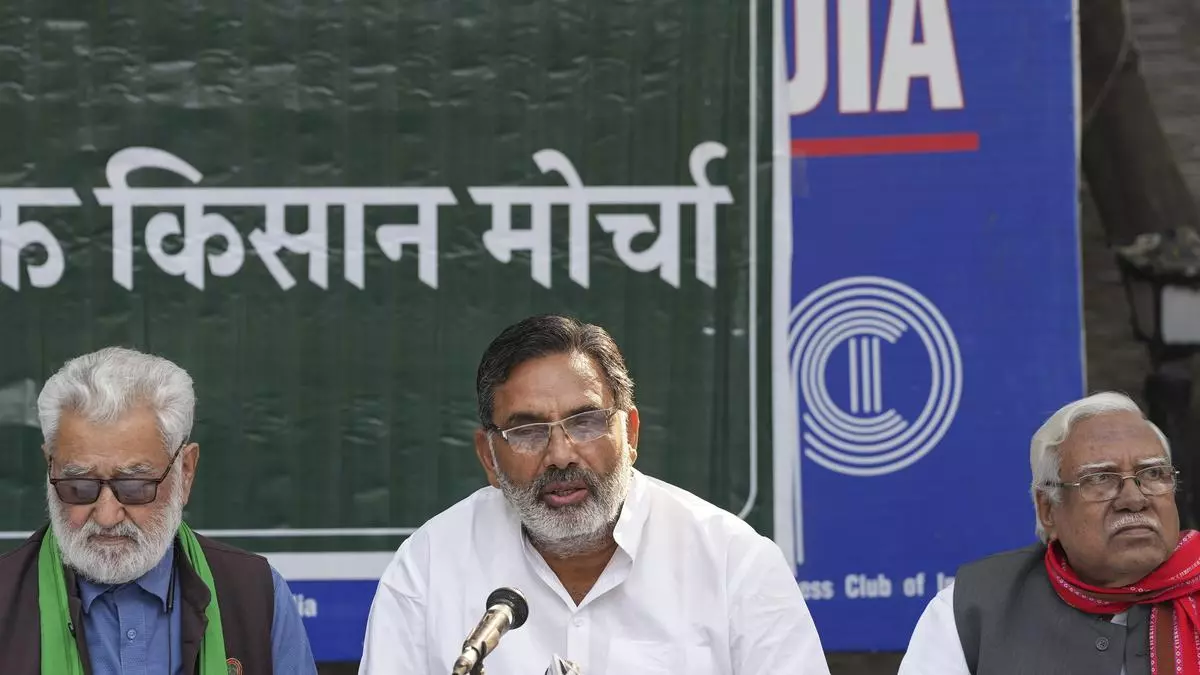India may see another farmer agitation over legal guarantee of MSP
Sensing the chance of a secured MSP before the next general election scheduled for 2024, farmer leaders have been setting up momentum-building activities, which have already begun informal talks between the various groups. The main Samyukta Kisan Morcha (SKM), which led a one-year farmers’ protest that finally forced the government to withdraw the controversial Three Farming Laws, has been weakened after several defections and desertions in the past year.
“The legal guarantee of the lowest support price (MSP) is one of the issues on which there is no disagreement among all the farmers’ unions. Besides, there is also consensus to reform the MSP in the formula of C2 + 50 per cent,” said Avik Saha of Jai Kisan Andolan, who is Also a member of the Steering Committee of SKM.
pressure on political parties
Darshan Pal, a farmer leader from Punjab, said that since some state elections are scheduled next year and general elections are scheduled after a year and a half, there will be pressure on the political parties to meet the farmers’ demands. Pal said there would be at least 50,000 farmers in Chandigarh on the protest march.
Before the 2014 General Elections, it was Narendra Modi, as a prime ministerial candidate of the BJP, who first promised to implement Swaminathan’s formula of fixing the MSP at 50 per cent profit on cost after numerous demand agitations by farmers’ unions. different at that time. Later in 2018, the center delivered on the promise by reforming the MSPs of 23 crops with a minimum profit of 50 percent on production costs (A2 + family labour).
national march
Earlier, Pal, addressing the media on Thursday, said Samyukta Kisan Morcha (SKM) will hold a nationwide rally to Raj Bhawans on November 26, to mark two years since the farmers’ protest reached the Delhi border from Punjab. It was alleged that there had been a breach of assurance by the center regarding the farmers’ outstanding claims. He also said that farmers will celebrate on November 19 as “Fateh Diwas” or “Victory Day” to mark Prime Minister Modi’s announcement of repeal of the Farm Laws.
The general body of SKM is also scheduled to meet in Karnal, Haryana, on December 8 to decide the future course of the movement.
Asked about the many divisions in the front (SKM), Yudhvir Singh of the Bharatiya Kisan Union (BKU) said he hoped to re-unite all organizations because the issue is important and everyone wants to do something for the farmers. About 16 organizations have returned to the fold of SKM after realizing that it was wrong to contest elections in Punjab, while six groups remain outside the front, farmer leaders said.
“When the call to march to Delhi was issued in 2020, SKM did not exist, and it was only formed after farmers reached the Delhi border. Of course, the three ‘Black Laws’ provided the impetus, but the legal guarantee can also be a focal point. Similar to future induction,” Saha said.
When asked if MSP’s legal guarantee was still relevant as farmers sold higher than standard prices for most of Rabi’s crops such as wheat, mustard, lentils and barley in 2022, he said the local prices of agricultural products were higher due to the war affecting them. The global supplies of many crops and the issue of farmers achieving MSP or not must be seen in the normal situation.
According to official data, the average Mandi prices of wheat across India were 3 per cent higher than their average wheat price of 2,015 per quintal during the main arrival period (March-June) of 2022. Similarly, the Selling lentils by farmers at 15 per quintal. percent above their MSP of ₹5,500 per quintal, mustard at 26 percent above 5,050, and barley at 56 percent above ₹1,635/quintal. Gram (channa) sold only 11 per cent less than the MSP of 5,230 rupees per quintal.
